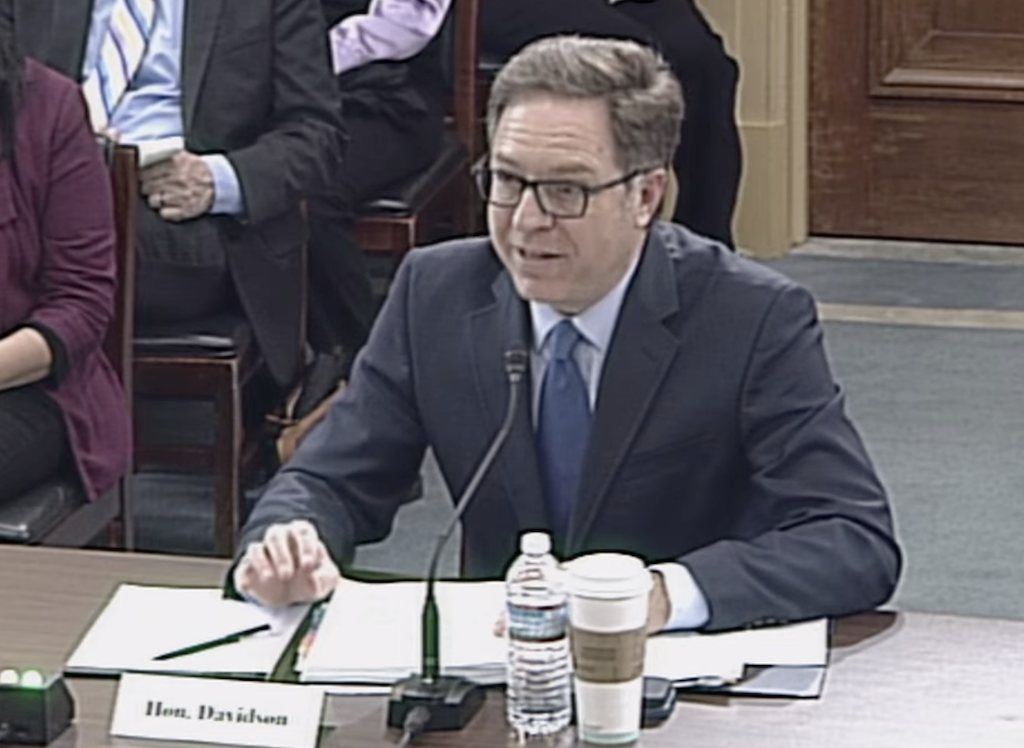House Republicans Again Take Issue with BEAD Affordability Regs
The NTIA head defended its policy of ensuring a low-cost option.
Jake Neenan

WASHINGTON, May 15, 2024 – House Republicans clashed again on Wednesday with the National Telecommunications and Information Administration’s top official over affordability provisions of the agency’s $42.5-billion broadband expansion program.
The policy at issue is the Broadband Equity, Access and Deployment program’s low-cost requirement, which requires participating ISPs to offer a more affordable plan for low-income households served by BEAD infrastructure.
Echoing previous complaints from GOP lawmakers and conservative groups, Republicans at a House oversight hearing accused the NTIA of violating the Infrastructure Act’s prohibition on broadband rate regulation by asking states to institute strong requirements for those low-cost plans. States must get NTIA approval on their BEAD proposals before awarding grants under the program.
“I understand that you're also pressuring states to regulate broadband rates in their state plans,” House Communications Subcommittee Chair Bob Latta, R-Ohio, said. “Aren’t you violating the law by pressuring states to do so by effectively forcing them to set a price for internet in their plans?”
“The statute requires that there be a low-cost service option,” NTIA Administrator Alan Davidson said in response to Latta. “We do not believe the states are regulating rates here. We believe that this is a condition to get a federal grant. Nobody’s requiring a service provider to follow these rates, people do not have to participate in the program.”
Multiple lawmakers referenced feedback the NTIA gave to Virginia, which the state published with a revised draft of its BEAD proposal, asking for “an exact price or formula” for the low-cost plan to get a more concrete sense of how the plan would affect consumers. The state had originally proposed to have providers submit their own low-cost plans as part of the grant application process.
Davidson said he wasn’t familiar with the correspondence, but defended instituting strong requirements.
“You have to be able to understand what is affordable,” he said. “Every state has to submit a low-cost option that we can understand is affordable. When states do that, we will approve their plans.”
The agency has approved the full proposals of seven states, plus the District of Columbia. Davidson affirmed Commerce Secretary Gina Raimondo’s recent testimony that NTIA, housed in the Department of Commerce, is on track to get the rest of its approvals done by this fall.
State-level low-cost plans
Of the states with approvals, most have gone with a cap of $30 or $50 per month for low-cost plans, with Louisiana allowing providers to increase that up to $65 if necessary for the financial sustainability of a project and others allowing for yearly increases to keep pace with inflation. Pennsylvania hasn’t yet posted the approved version of their proposal.
Not every state has published the public comments they received on their plans, but the major broadband trade group USTelecom told Kansas a $30 cap for low-cost plans would constitute “impermissible rate regulation.” For its part, AT&T said the company “does not oppose the adoption of the $30 low-cost option,” but took issue with a proposal to lock that price in for five years, which the state walked back to two years in its approved plan.
Democratic lawmakers support the agency’s policy, with Doris Matsui, D-California, the subcommittee’s ranking member, asking Davidson to ensure state proposals result in affordable broadband service. She and other House Democrats sent the agency a letter to the same effect in March.
Davidson said the NTIA has put together a memorandum of understanding with the FCC, USDA, and the Treasury Department, all of which administer their own broadband subsidy programs, on sharing information and coordinating those programs.
“The tricky part will be what happens if providers don’t follow through,” he said. “Our expectation, we’ve discussed it with some of our other agencies, is that agencies that have funded a particular deployment should continue to seek to fund deployments for those locations.”
That’s in large part a reference to the FCC’s Rural Digital Opportunity Fund program, which has been plagued by provider defaults. Homes and businesses that are on paper set to be served by RDOF are not eligible for BEAD, and advocates have been pushing the FCC to allow providers to default with lesser penalties in an effort to get commitments that might eventually fall through off the books before BEAD maps are finalized.
Most states are in the process of refining their broadband coverage data in advance of creating those final maps.









Member discussion